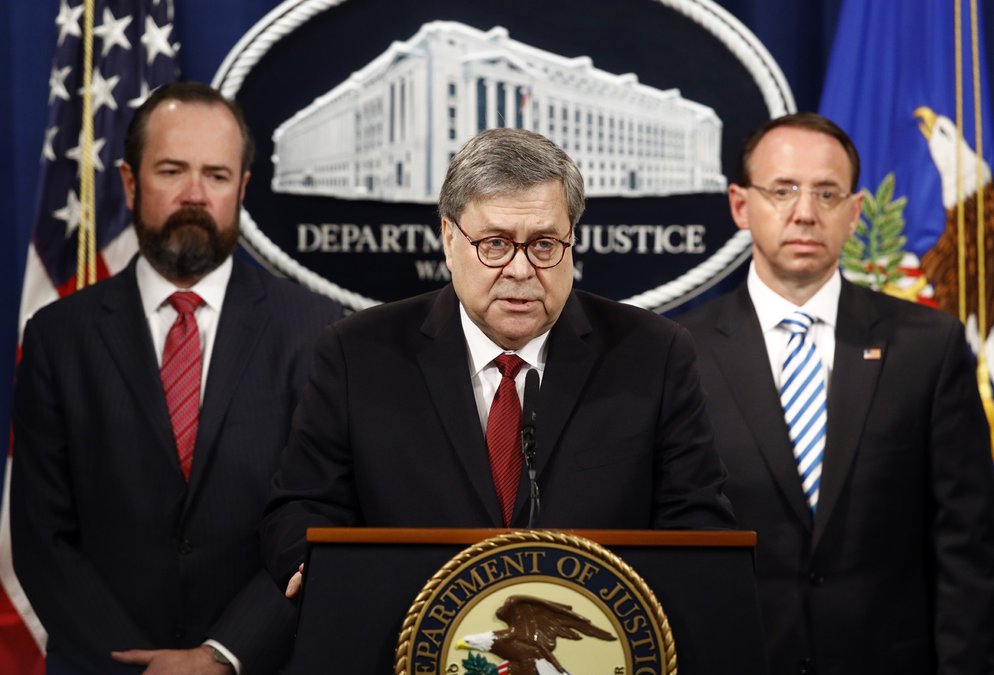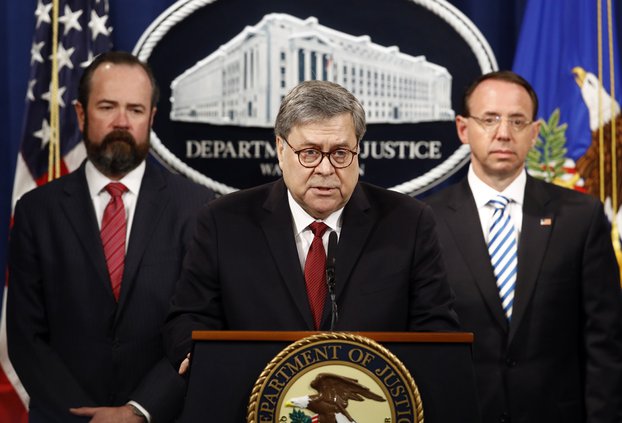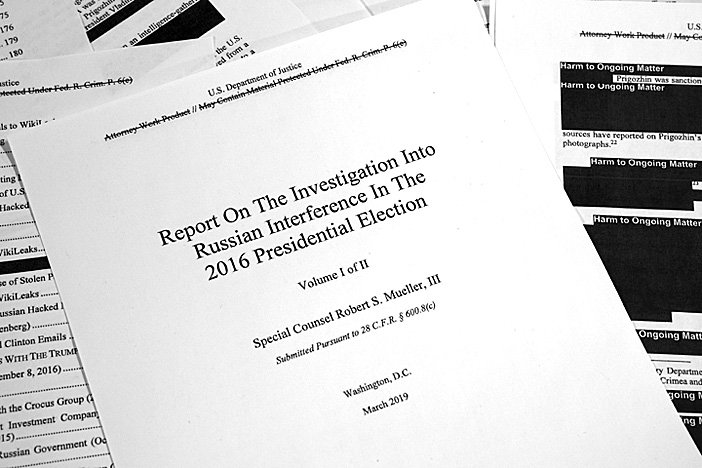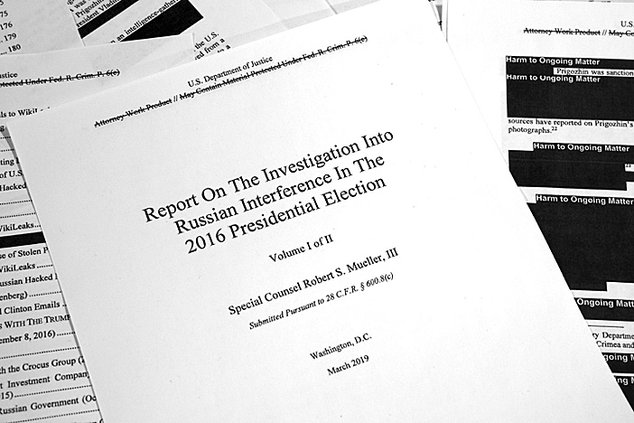WASHINGTON — Public at last, special counsel Robert Mueller’s report revealed to a waiting nation Thursday that President Donald Trump tried to seize control of the Russia probe and force Mueller’s removal to stop him from investigating potential obstruction of justice by the president. Trump was largely thwarted by those around him.
Mueller laid out multiple episodes in which Trump directed others to influence or curtail the Russia investigation after the special counsel’s appointment in May 2017. Those efforts “were mostly unsuccessful, but that is largely because the persons who surrounded the President declined to carry out orders or accede to his requests,” Mueller wrote.
The report’s bottom line largely tracked the findings revealed in Attorney General William Barr’s four-page memo released a month ago — no collusion with Russia, no clear verdict on obstruction — but it added troubling layers of detail about Trump’s efforts to thwart the investigation. Looking ahead, both sides were already using findings to amplify well-rehearsed arguments about Trump’s conduct, Republicans casting him as a victim of harassment and Democrats depicting the president as stepping far over the line to derail the investigation.
After nearly two years, the two-volume, 448-page redacted report made for riveting reading.
In one particularly dramatic moment, Mueller reported that Trump was so agitated at the special counsel’s appointment on May 17, 2017, that he slumped back in his chair and declared: “Oh my God. This is terrible. This is the end of my presidency.”
With that, Trump set out to save himself.
In June of that year, Mueller wrote, Trump directed White House Counsel Don McGahn to call Deputy Attorney General Rod Rosenstein, who oversaw the probe, and say that Mueller must be ousted because he had conflicts of interest. McGahn refused — deciding he would rather resign than trigger a potential crisis akin to the Saturday Night Massacre of Watergate firings fame.
Two days later, the president made another attempt to alter the course of the investigation, meeting with former campaign manager Corey Lewandowski and dictating a message for him to relay to then-Attorney General Jeff Sessions. The message: Sessions would publicly call the investigation “very unfair” to the president, declare Trump did nothing wrong and say that Mueller should limit his probe to “investigating election meddling for future elections.” The message was never delivered.
The Justice Department released a redacted version of the report about 90 minutes after Attorney General William Barr offered his own final assessment of the findings at a testy Justice Department news conference. The nation, Congress and Trump’s White House consumed the report voraciously — online, via a compact disc delivered to legislators and in loose-leaf binders distributed to reporters.
The release represented a moment of closure nearly two years in the making but also the starting bell for a new round of partisan warfare.
Trump celebrated the report’s release, telling the audience at an unrelated White House event that he was having “a good day, too. It was called no collusion, no obstruction.” He also renewed his calls for an investigation into the origins of the inquiry, saying, “We do have to get to the bottom of these things, I will say.”
Top Republicans in Congress saw vindication, too.


House Minority Leader Kevin McCarthy said it was time to move on from Democrats’ effort to “vilify a political opponent.” The California lawmaker said the report failed to deliver the “imaginary evidence” incriminating Trump that Democrats had sought.
But Democrats cried foul over Barr’s press conference and said the report revealed troubling details about Trump’s conduct in the White House.
“Even in its incomplete form, the Mueller report outlines disturbing evidence that President Trump engaged in obstruction of justice and other misconduct,” said House Judiciary Chairman Jerrold Nadler.
He sent a letter to the Justice Department requesting that Mueller himself testify before his panel “no later than May 23.” Barr said he wouldn’t object to Mueller testifying.
Trump himself was never questioned in person, but the report includes 12 pages of written responses to questions from the Mueller team.
In one, Trump said that his comment during a 2016 political rally asking Russian hackers to help find emails scrubbed from Clinton’s private server was made “in jest and sarcastically” and that he did not recall being told during the campaign of any Russian effort to infiltrate or hack computer systems.
However, Mueller said that within five hours of Trump’s comment, Russian military intelligence officers targeted email accounts connected to Clinton’s office.
Mueller evaluated 10 episodes for possible obstruction of justice, and said he could not conclusively determine that Trump had committed criminal obstruction. The episodes included Trump’s firing of FBI Director James Comey, the president’s directive to subordinates to have Mueller fired and efforts to encourage witnesses not to cooperate.
The president’s lawyers have said Trump’s conduct fell within his constitutional powers, but Mueller’s team deemed the episodes deserving of scrutiny for potential criminal acts.
As for the question of whether the Trump campaign had colluded with Russia during the 2016 presidential campaign, Mueller wrote, “While the investigation identified numerous links between individuals with ties to the Russian government and individuals associated with the Trump Campaign, the evidence was not sufficient to support criminal charges.”
Workers at a Russian troll farm contacted Trump’s campaign, claiming to be political activists for conservative grassroots organizations, and asked for signs and other campaign materials to use at rallies. While volunteers provided some of those materials — and set aside a number of signs — investigators don’t believe any Trump campaign officials knew the requests were coming from foreign nationals, Mueller wrote.
Mueller also said there wasn’t sufficient evidence to charge any campaign official with working as an unregistered foreign agent of Russia or violating federal campaign finance laws.

